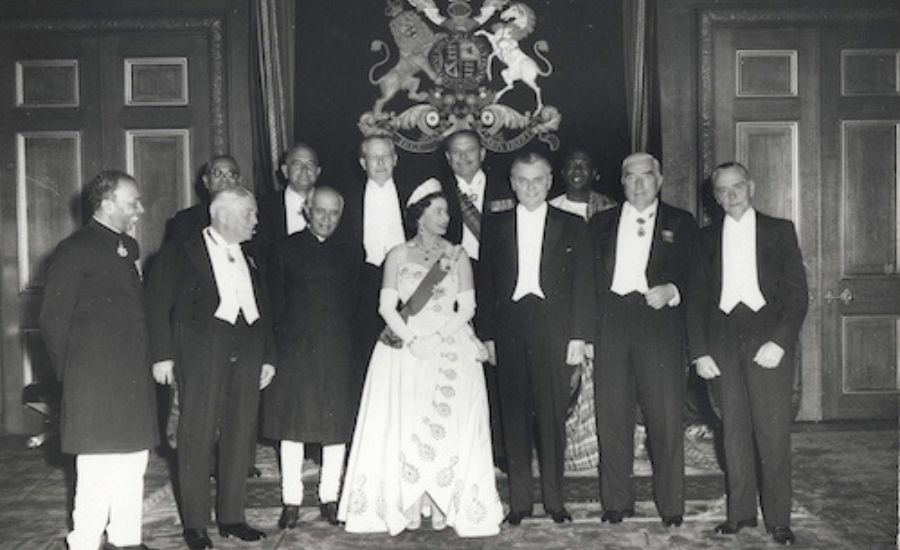
On 16 May 1949, Jawaharlal Nehru, moved a motion in the Constituent Assembly, asking his fellow Constitution framers to ratify the Indian government’s decision to remain in the Commonwealth of Nations. To many in the Assembly, this would have come as a surprise. It was Nehru who, while introducing the Objectives Resolution, declared with great emotion that India would be a sovereign republic. This was in effect a rejection of dominion status in favour of complete independence, and also implied the severing of India’s ties with the Commonwealth. So, most expected that India would discontinue its Commonwealth membership.
Yet behind the scenes, Nehru’s attitude towards the Commonwealth was slowly evolving. He began to believe that Commonwealth membership would bring political and economic benefits to India. Specifically, it would ensure close ties with England – still India’s largest trading partner.
In 1949, Nehru attended the Commonwealth Prime Minister’s Conference, where he told other Prime Ministers that India would like to remain a member of the Commonwealth even though it had declared itself as a republic. The Conference after much deliberation accepted this arrangement.
Nehru had to now get the Assembly to ratify India’s decision to remain in the Commonwealth. In his speech moving the ratification motion, Nehru anticipated criticism. He emphasized that India’s membership had no bearing on the country’s independence and suggested why this was beneficial: to maintain and develop friendly relations with the Commonwealth nations. Many Assembly members, however, were not convinced.
Shibban Saxena suggested that Commonwealth membership was akin to dominion status. He reminded the Assembly that Nehru and Congress had for many years vigorously opposed dominion status for India. Further, he was concerned that India’s membership implied that it was part of the ‘Anglo-American’ power bloc which would constrain India’s foreign policy going forward.
H.V. Kamath brought the Assembly’s attention to the novelty of India’s proposed Commonwealth membership: ‘It is a new development, may I say, in political theory, this association of an independent Republic with the Commonwealth of Nations, which has a king at its head.’ He preferred that India adopt the approach that Ireland was considering: India should not join the Commonwealth but recognize and confirm the existence of a special relationship between the various Commonwealth nations. Kamath rejected the argument that the lack of Commonwealth membership was the same as living in isolation.
Not all members were critical of Nehru’s motion. Ananthsayanam Ayyanagar viewed India’s Commonwealth membership as India’s legitimate desire to maintain and further friendly relations with nations. Alladi Krishnaswamy Ayyar said that India’s membership of the Commonwealth was not a divergence from the Assembly’s idea of India being ‘a Sovereign Independent Republic, both in her internal affairs and external relations.’ Ayyar was joined by Frank Anthony in arguing that India’s economic and military interests were served by having a cordial relationship with Britain, and a Commonwealth membership could serve this purpose.
Nehru responded to his critics in his closing remarks. In a long speech, he suggested that the opposition to India’s membership arose out of a place of bitterness towards the British and India’s experience of British colonialism. He argued that things were different now – ‘the world has changed; England has changed; Europe has changed; India has changed; everything has changed and is changing….’
In the end, the Assembly adopted the motion that Nehru had proposed. India would continue to be a member of the Commonwealth of Nations. Never before did a country declare itself as a republic and continue, or was allowed to continue, to be a member of the Commonwealth.

thanks for the information